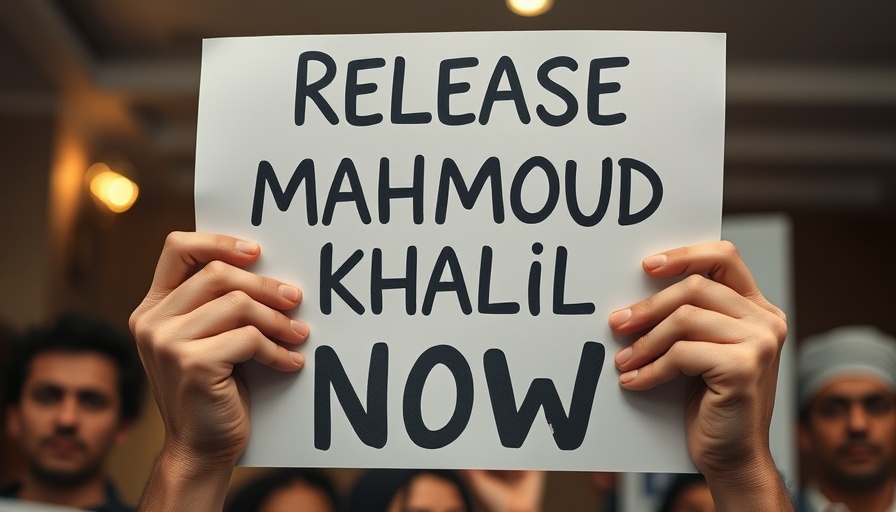
The Judicial Triumph of Activism: A New Chapter for Khalil
In a significant moment for pro-Palestinian activism and civil liberties, a U.S. judge has ordered the immediate release of Mahmoud Khalil, a Columbia University graduate, from immigration custody. His release, ordered by U.S. District Judge Michael Farbiarz, marks a critical victory for human rights advocates who have been vocal against perceived unlawful targeting by the previous administration.
Contextualizing the Events: Khalil’s Arrest and Its Implications
Khalil was apprehended on March 8, 2025, in the lobby of his university residence, becoming the first known target of a controversial policy that suggested the deportation of foreign students engaging in protests against Israel. This policy emerged after President Trump branded the protests as antisemitic, igniting widespread criticism from various rights organizations. The implications of this policy reverberated through campuses across the nation, igniting broader conversations about academic freedom and the rights of activists.
The Legal Proceedings: An Analysis of Key Arguments
During the court hearings, Khalil's legal team successfully argued that the government failed to demonstrate he was a flight risk or posed a danger to public safety. Judge Farbiarz’s ruling is particularly poignant, illustrating a legal precedent where activism is defended under the guise of freedom of speech. The arguments made by Khalil's lawyers highlighted a crucial need for judicial oversight when it comes to government actions potentially infringing on civil liberties.
Protests and Public Sentiment: The Backdrop of Khalil’s Case
This case is emblematic of a larger social conflict as American citizens grapple with issues of free speech, national identity, and human rights. Public sentiment has noticeably shifted since Khalil’s arrest, with many students rallying support for him, emphasizing solidarity among those advocating for Palestinian rights. Movements urging for justice and fair treatment have grown, reflecting the changing dynamics of public opinion regarding social justice issues.
Reflections on the Broader Picture: Civil Rights and Political Activism in America
This event challenges citizens to consider their role in upholding civil liberties in an era of heightened political tensions. Khalil's release is not just a personal victory; it symbolizes a larger statement about the resilience of democratic principles and the power of collective activism. As we watch this story unfold, it is imperative to reflect on what it means for the future landscape of political activism, particularly in how young voices are vital in advocating for change.
Future Predictions: The Path Forward for Activism and Immigration Policy
The judicial outcome of Khalil's case could set a precedent that will influence future interactions between law enforcement and activist groups. As global issues continue to impact local contexts, supporters of social justice must remain vigilant in ensuring that government policies do not infringe upon the freedom to advocate for change. There is hope that this victory could encourage more individuals to engage in activism, understanding that their voices matter and their rights must be defended.
Conclusion: A Call for Continued Vigilance and Activism
As Khalil walks free, it is crucial for fellow activists, students, and citizens to stay engaged in monitoring government actions and advocating for policies that protect civil liberties. This case serves as a reminder of the power of community support and the importance of justice in maintaining a healthy democracy. By standing united against oppression, the public can ensure that the struggles of today are not in vain, fostering an environment where activism thrives. Remember, every voice counts!
 Add Row
Add Row  Add
Add 



Write A Comment